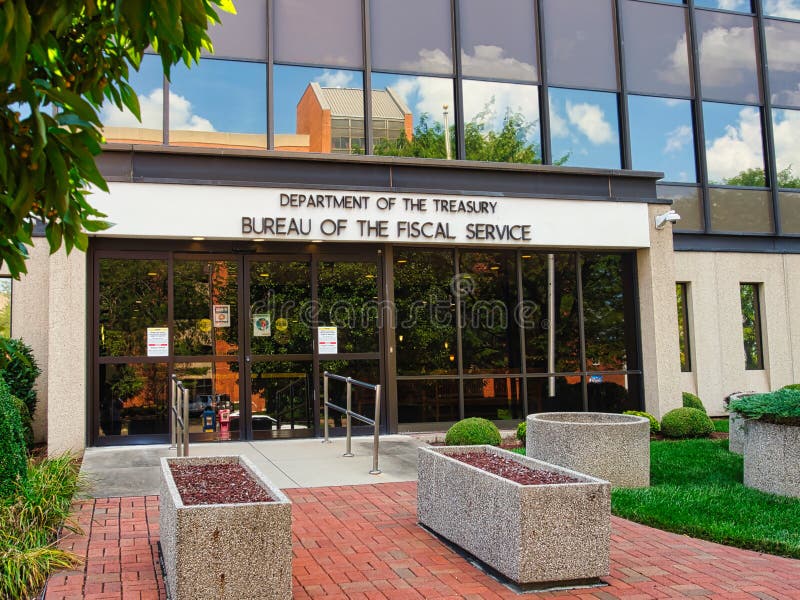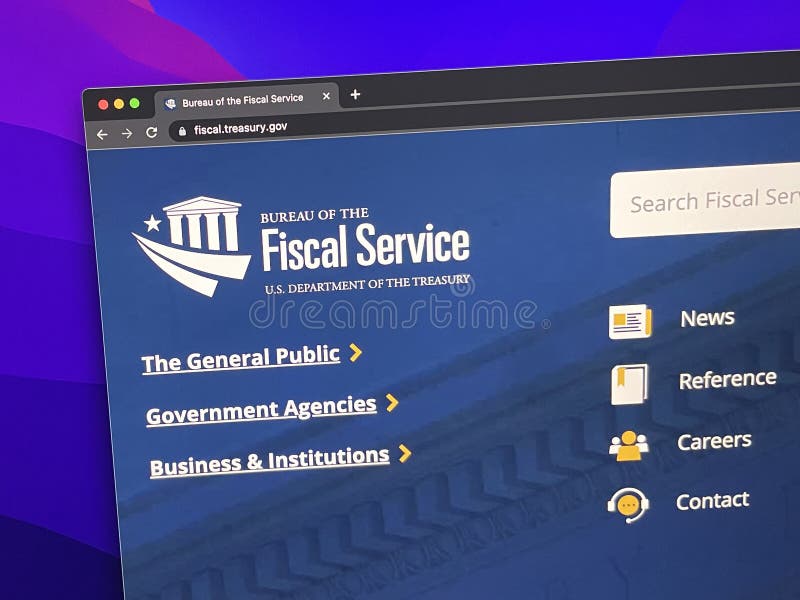Treasury Department Bureau Of Fiscal Service: Managing Federal Finances For A Stronger Nation
The Treasury Department Bureau of Fiscal Service plays a crucial role in managing the financial operations of the United States government. As a vital component of the Department of the Treasury, this bureau ensures the smooth functioning of federal finances through its diverse responsibilities and services. In today's complex economic landscape, understanding the Bureau of Fiscal Service's role becomes increasingly important for citizens, businesses, and policymakers alike.
Established to support the financial needs of the federal government, the Bureau of Fiscal Service handles a wide range of fiscal operations. From managing the government's accounts to issuing federal securities, this bureau's work directly impacts the nation's financial health. By maintaining accurate records and ensuring transparency, the Bureau of Fiscal Service contributes significantly to the stability and credibility of the U.S. financial system.
This article will provide an in-depth exploration of the Treasury Department Bureau of Fiscal Service, examining its history, responsibilities, and impact on the nation's financial landscape. We will also discuss the bureau's role in modern financial management and how it continues to adapt to meet the evolving needs of the federal government.
- Kearny Mesa Chevrolet San Diego Your Ultimate Guide To Exceptional Service And Quality Vehicles
- Floyd Mayweather Weight Height The Ultimate Guide To His Physical Stats And Boxing Career
Table of Contents
- Overview of the Bureau of Fiscal Service
- Historical Background
- Key Responsibilities
- Services Provided
- Technology and Innovation
- Regulations and Compliance
- Impact on the Economy
- Current Challenges
- Future Directions
- Conclusion
Overview of the Bureau of Fiscal Service
The Treasury Department Bureau of Fiscal Service serves as a cornerstone of the federal government's financial infrastructure. Established to streamline fiscal operations, the bureau oversees a variety of critical functions that ensure the government's financial stability. Through its diverse portfolio of services, the Bureau of Fiscal Service supports federal agencies, manages government accounts, and facilitates the issuance of federal securities.
One of the bureau's primary responsibilities is managing the government's cash flow. This involves monitoring incoming revenues, processing payments, and ensuring that federal agencies have access to the funds they need to carry out their missions. By maintaining accurate records and adhering to strict financial protocols, the Bureau of Fiscal Service helps prevent fraud and ensures accountability in government spending.
Key Functions
- Managing government accounts
- Issuing federal securities
- Processing payments and refunds
- Providing financial services to federal agencies
Historical Background
The origins of the Bureau of Fiscal Service can be traced back to the early days of the United States government. Over the years, the bureau has undergone several transformations to adapt to changing financial needs. Initially established as the Office of the Treasurer, the bureau gradually expanded its scope to include a broader range of fiscal responsibilities.
- Maplewood Mall White Bear Avenue Saint Paul Mn Your Ultimate Shopping And Entertainment Destination
- Minnesota Vikings Remaining Schedule A Comprehensive Guide For Fans
Today, the Bureau of Fiscal Service operates as part of the Department of the Treasury, working closely with other agencies to ensure the efficient management of federal finances. Its evolution reflects the growing complexity of the nation's financial system and the need for a centralized authority to oversee fiscal operations.
Milestones in Development
- Establishment of the Office of the Treasurer in 1789
- Expansion of responsibilities in the 19th century
- Modernization efforts in the 20th century
Key Responsibilities
As part of its mandate, the Bureau of Fiscal Service assumes several critical responsibilities. These include managing government accounts, issuing federal securities, and providing financial services to federal agencies. By fulfilling these duties, the bureau ensures the smooth functioning of the federal government's financial operations.
Managing government accounts involves overseeing the disbursement and collection of funds across various federal agencies. This requires meticulous record-keeping and adherence to strict financial regulations. The bureau also plays a key role in issuing federal securities, which help finance government operations and support economic growth.
Specific Duties
- Overseeing government cash management
- Issuing Treasury bonds, notes, and bills
- Providing financial services to federal agencies
Services Provided
The Bureau of Fiscal Service offers a wide range of services designed to meet the financial needs of the federal government. These services include payment processing, refund management, and debt collection. By leveraging advanced technology and innovative solutions, the bureau ensures the efficient delivery of these services to federal agencies and the public.
Payment processing remains one of the bureau's most important services. This involves handling payments for federal employees, contractors, and beneficiaries of government programs. The bureau also manages refund processes, ensuring that individuals and businesses receive timely refunds for overpayments or erroneous charges.
Service Categories
- Payment processing
- Refund management
- Debt collection
Technology and Innovation
In an era of rapid technological advancement, the Bureau of Fiscal Service continues to embrace innovation to enhance its operations. By adopting cutting-edge technologies, the bureau improves the efficiency and accuracy of its services. This includes implementing digital solutions for payment processing, account management, and financial reporting.
Recent innovations have focused on enhancing cybersecurity measures to protect sensitive financial data. The bureau has also invested in data analytics tools to improve decision-making and optimize resource allocation. These technological advancements not only streamline operations but also ensure the bureau remains at the forefront of modern financial management.
Technological Initiatives
- Implementation of digital payment systems
- Enhanced cybersecurity protocols
- Adoption of data analytics tools
Regulations and Compliance
As a federal agency, the Bureau of Fiscal Service must adhere to a comprehensive set of regulations and compliance standards. These regulations ensure the integrity and transparency of the bureau's operations, protecting both the government and the public from financial mismanagement.
Key regulations include the Federal Financial Management Improvement Act (FFMIA) and the Chief Financial Officers Act (CFO Act). These laws establish guidelines for financial reporting, internal controls, and audit requirements. By complying with these regulations, the Bureau of Fiscal Service maintains the trust and confidence of stakeholders.
Key Regulatory Frameworks
- Federal Financial Management Improvement Act (FFMIA)
- Chief Financial Officers Act (CFO Act)
- Government Accountability Office (GAO) standards
Impact on the Economy
The work of the Bureau of Fiscal Service has a profound impact on the U.S. economy. By managing government finances effectively, the bureau contributes to the stability and growth of the nation's economy. Its role in issuing federal securities helps finance government operations and supports economic development.
Beyond its direct responsibilities, the bureau's efforts influence broader economic trends. By ensuring the efficient allocation of resources and maintaining transparency in financial operations, the Bureau of Fiscal Service fosters a climate of trust and confidence in the U.S. financial system.
Economic Contributions
- Supporting government operations
- Facilitating economic growth
- Maintaining financial stability
Current Challenges
Despite its successes, the Bureau of Fiscal Service faces several challenges in today's rapidly changing financial landscape. These include managing increasing volumes of financial transactions, addressing cybersecurity threats, and adapting to evolving regulatory requirements.
To overcome these challenges, the bureau must continue to innovate and invest in new technologies. This includes enhancing cybersecurity measures, improving data analytics capabilities, and streamlining operations through automation. By addressing these challenges proactively, the bureau can ensure its continued effectiveness in managing federal finances.
Key Challenges
- Increase in financial transaction volumes
- Cybersecurity threats
- Regulatory changes
Future Directions
Looking ahead, the Bureau of Fiscal Service is poised to play an even more critical role in the management of federal finances. As the U.S. government continues to evolve, the bureau must adapt to meet new challenges and opportunities. This includes expanding its use of technology, enhancing cybersecurity measures, and improving service delivery to federal agencies and the public.
Future initiatives will focus on leveraging data analytics to optimize resource allocation, implementing blockchain technology for secure transactions, and enhancing transparency in financial operations. By staying ahead of emerging trends and technologies, the Bureau of Fiscal Service will continue to support the financial stability and growth of the nation.
Upcoming Initiatives
- Expansion of data analytics capabilities
- Implementation of blockchain technology
- Enhanced transparency in financial operations
Conclusion
In conclusion, the Treasury Department Bureau of Fiscal Service plays a vital role in managing the financial operations of the United States government. Through its diverse responsibilities and innovative approaches, the bureau ensures the efficient and transparent management of federal finances. As the financial landscape continues to evolve, the Bureau of Fiscal Service remains committed to adapting and improving its services to meet the needs of the nation.
We invite readers to share their thoughts and feedback in the comments section below. Your input helps us improve and expand our coverage of important financial topics. For more information on the Bureau of Fiscal Service and related topics, explore our other articles and resources available on our website.
- Minnesota Vikings Remaining Schedule A Comprehensive Guide For Fans
- When Is The New Fortnite Season Coming Out Your Ultimate Guide To Battle Passes Updates And More

Bureau of the Fiscal Service

Bureau of the Fiscal Service in Parkersburg WV Wood County USA

Bureau of the Fiscal Service in Parkersburg WV Wood County USA